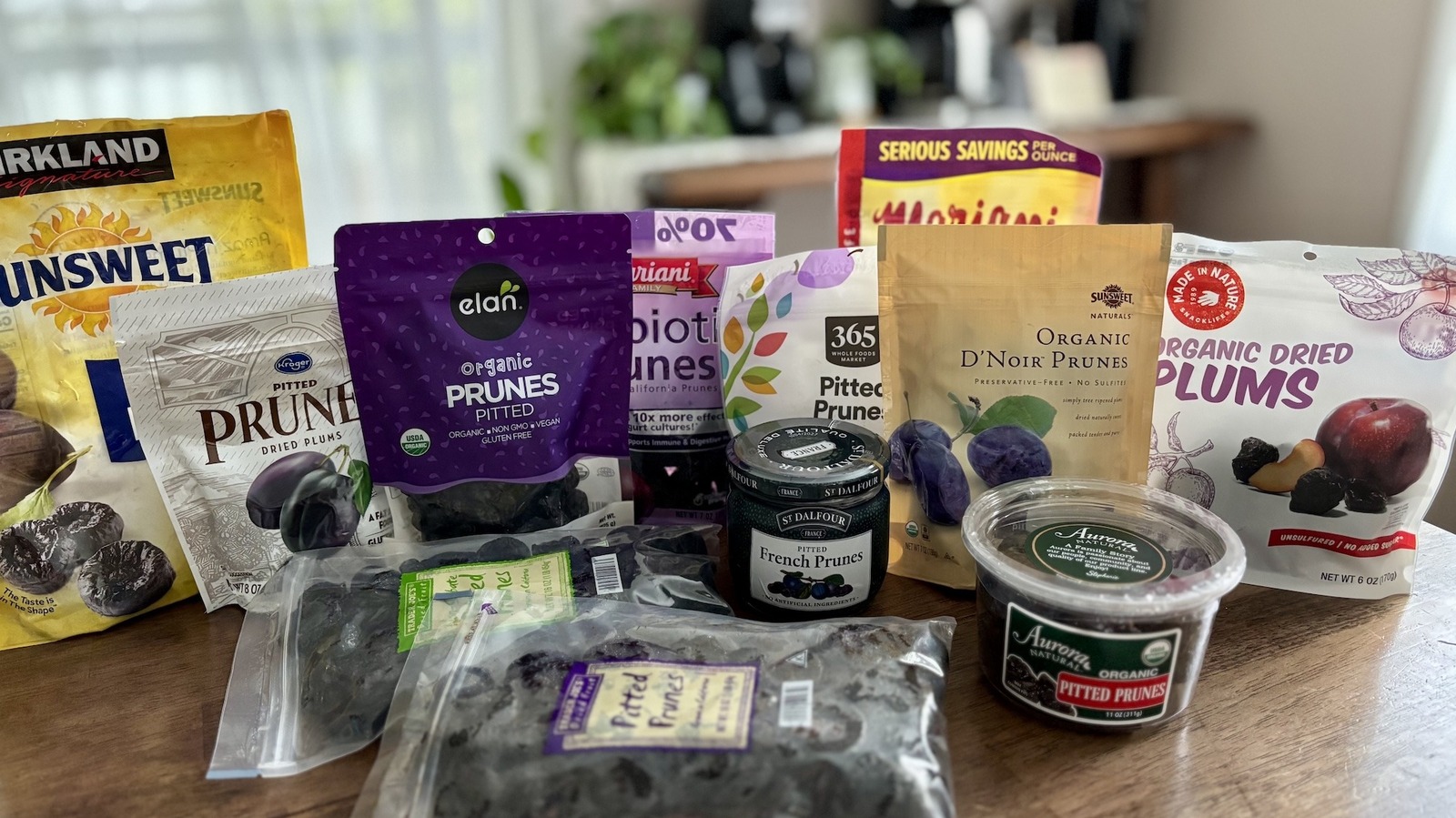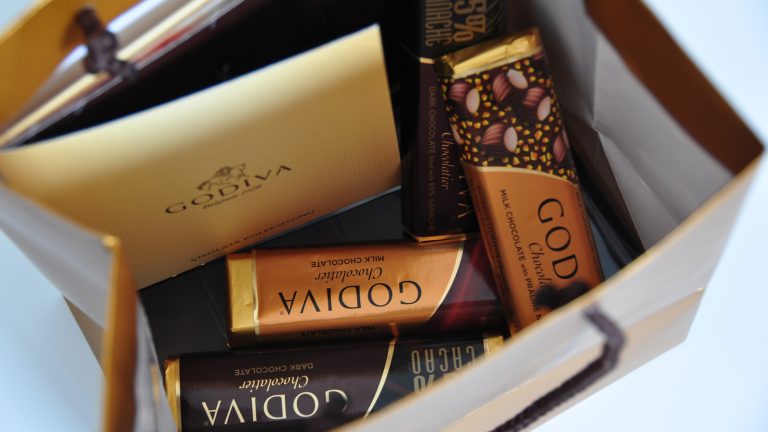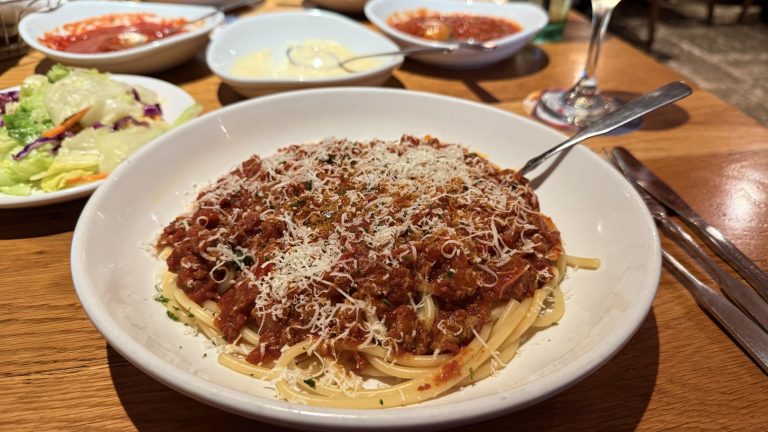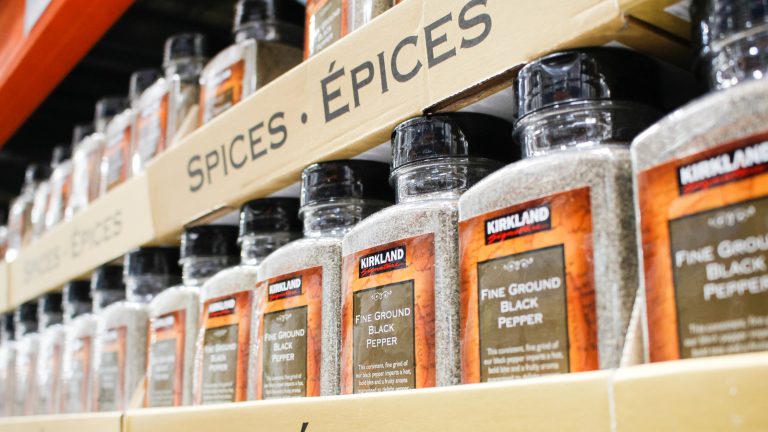We may receive a commission on purchases made from links.
Prunes. Did your granddad eat them for breakfast every morning, stewed alongside a dish of oatmeal? Did your dad force-feed them to you whenever things got a little backed up? Do you use them to improve your boxed brownies? Or do you, like this writer, routinely use dried fruit such as prunes to make energy balls — a seriously great hack that you should get on board with immediately, by the way.
They’re all over history too: Prunes are a primary component of Election Cake, for example, and if you’ve never heard of that, it’s because you weren’t born in Colonial America when it was born (along with several other old-school desserts no one makes anymore). Whatever your relationship with Mother Nature’s laxative, you surely have one. It might be fear (dad’s home remedies), interest (Dr Pepper has notes of prune on its list of possible flavors), or confusion … like, are dates prunes?
What you probably don’t know, unless you’re a true aficionado, is which ones to look for at your local Middle Eastern grocery store or corner shop. Since everyone should have a supply on hand in case of emergency, the Chowhound team decided it would be a good idea to rank the best prune brands for your perusal. Accordingly, my family and I went to work. You can find the full method to our madness below in the Methodology section, but for now, let’s take a look at the merits of some of America’s most popular prune brands.
12. Trader Joe’s Non-Sorbate Prunes
Before we go any further, let’s do a quick look-see at what exactly a prune is. It’s a dried plum. Not that while drying is a form of preservation, prunes aren’t frozen, sugared, or otherwise processed other than dehydration and — in most cases, at least — the addition of a preservative. Freeze-dried and dried fruits are also different, the former referring to a process in which frozen fruit is placed in a vacuum, where the ice sublimates (turns directly to gas) and is removed, leaving behind a crunchy, dehydrated product.
That said, Trader Joe’s Non-Sorbate Pitted Prunes are worse than fruit processed by any combination of fresh, dried, freeze-dried, preserved, and frozen, all put together. They truly tasted very, very bad. We theorized this might be because, unlike many of the prunes on this list, they lacked potassium sorbate, a preservative that inhibits the growth of microorganisms on food. Oddly, though, there’s no evidence that potassium sorbate is used directly to soften food, even though all the prunes on this list that contained it were much softer than those without it, which were hard, chewy, and lacking in the pleasingly sticky quality of the others. It does help fruit retain moisture, though, of which these are sorely in need. They also tasted unripe.
As far as the best prune brands go, this was not it. This was the opposite of it. Even for $3.99, and even compared to the other dried fruit you’ll find on Trader Joe’s shelves, this is terrible. If it’s between these and the enema, take the enema. Avoid.
11. Kroger Prunes
Kroger is not a brand for which our family has a towering level of respect. It’s typically low-quality and runs the gamut from toothpaste to TV dinners to candy. Any brand that lacks specialization so spectacularly tends to be of middling quality at best. (This, by the way, is partially why we were so disappointed by Trader Joe’s, which usually manages to avoid this trap.)
Whatever you may think of Kroger, let’s just say they did not number among the best prune brands. Although $4.49 is a decent price — all of our prune brands were about the same quantity, except where noted — the flavor was weird. The texture was fine (softer than TJ’s), and they contained no preservatives, but there was just something off about the flavor of these prunes, which left us wondering. If something is pretty uniform (e.g., dried plums) and only one member of the family tastes bizarre, why is that?
The fact that you don’t know — and will never know — is a problem. Further baseless speculation would be a disservice to the brand and to journalism itself, but consider yourself apprised.
10. Made in Nature Prunes
These prunes honestly tasted like they were made in nature, so I guess you can at least say that for them. Though they hardly numbered among the best prune brands, and though they cost $6.39 for an amount commensurate to what you’re getting from TJ’s, the Made In Nature Organic Dried Plums were slightly better than their harder, less flavorful compatriots. Still, they were too hard and too chewy, and although they had some flavor, they didn’t have enough.
In their favor, though, is the fact that they’re a better consistency for snacking if you want to take something on the go, because they’re not sticky. They’re closer to what you actually think of when you think “dried fruit,” so there’s that. Seriously, they’re hard enough that this would be a good opportunity to use kitchen shears on your dried fruit, which is a hack I’ve used successfully in the past with recalcitrant dates. You can chunk them up to throw in oatmeal or cookies, making it easier to divide them evenly, which is no mean feat with many prune brands, which are unmanageably viscous. Score one for preservative-free dried fruits, then?
9. Aurora Natural Prunes
At $9.99, we had high hopes for Aurora Products Organic Pitted Prunes. Those hopes were dashed, for lo, we still have not made it to the best prune brands. When we pulled them out of the package, someone commented that they looked like beef jerky, which right off the bat just isn’t what you’re looking for in a prune. Or anything sweet, really.
The actual tasting bore out our suspicions. These were, like the Trader Joe’s sorbate-free version and the Made in Nature prunes, too hard and too chewy, though the flavor was pretty decent. They have a lot of structural integrity, too, so they’re another good one for when you’re on the go or if you’re making energy balls and want something to hold its shape. Overall, though, these are lackluster.
8. Elan Prunes
Bear with us, please. Elan Organic Pitted Prunes were … too hard. Too chewy. Not sticky enough. Here’s a good rule of thumb with prunes: Can you pull the two halves apart neatly, exposing the sticky inside where the pit goes? If so, it’s soft enough for our taste. If not, as in this case, it’s a little too chewy. By now, you won’t be surprised to learn that these are preservative-free, containing nothing but the prunes themselves. At $6.89, that kind of review just won’t get you into the best prune brands category.
Oddly, though, these were still pretty sticky, making them the worst of both worlds: too chewy to really enjoy, too sticky to eat on the go if all you’re trying to do is top up with a little fiber and sugar. Their only saving grace, and the reason they’re ranked higher than their disappointing brethren, is that the flavor was pretty good. On a final note, we couldn’t find these at the store, so we bought them on Amazon. If you like to do your shopping in person, score one against.
7. Trader Joe’s Prunes
The Trader Joe’s Pitted Prunes, also $3.99 like their sorbate-free cousins, offered us an interesting opportunity when it came to testing the best prune brands: How much of a difference does potassium sorbate really make? Turns out, when you use the exact same primary ingredient, which in this case is pitted California dried plums, the answer is “a lot.” These were much softer and moister, more pleasant to chew, and easier to swallow. They were even a bit slimy, but not in a bad way. I actually like my prunes a little slimy, which just means they’re oozing sugar juices.
Indeed, you can tell by looking at the two types through the package alone how much the sorbate does to keep them soft and sticky. The ones that didn’t have sorbate were much more self-contained, as opposed to the ones that did, which were sticking to the inside of the plastic. All of which is to say, the jury is in: For good or ill, potassium sorbate matters. So having danced around the preservative question long enough, the question becomes: Is potassium sorbate really bad for you? Not really, according to research. It doesn’t accumulate in the body, and although there’s a chance it may be contaminated, that chance is low.
On a final note, both types of TJ’s prunes taste like they were unripe when they were picked, which is probably at least part of why they’re cheap. They can pick them early, use windfalls, transfer and process them more effectively, there are fewer rotten parts, and so on. But you pay for that in flavor.
6. 365 by Whole Foods Market
The 365 by Whole Foods Market brand is one with which we’ve typically had good luck in our taste tests. Their coffee creamer ranked fourth out of 12, while their coffee ice cream was in the top half of brands, and their chocolate ice cream ranked second of 14. In other words, 365 has a certain baseline of quality upon which you can rely, regardless of what you might think of Big Food.
So yes, we trust it, and were not surprised when the 365 by Whole Foods Market Pitted Prunes were pretty decent. Not great, but they did break into the top half and thus qualify as among the best prune brands money can buy. At $5.79, they’re spendier than Trader Joe’s, but they’re better enough that it’s worth it. Interestingly, these tasted like a different kind of plum from the rest. The flavor was richer and more developed, but not odd as in the case of Kroger. I would recommend.
5. Mariani Prunes
We’d never heard of Mariani Pitted Prunes before this taste test, so we were never before able to deliver this public service announcement: They’re pretty darn good. At only $3.99, they number among the best prune brands without costing obnoxious prices. Plus, they’re soft and sticky in just the right way, making them well-suited to snacking on or putting into various sauces.
The only problem is that they were a little under sweet, tasting like they’d been picked too early. Plus, the addition of vegetable oil made them a tad greasy, though that combined with the potassium sorbate sure did make for a plump, soft prune. Overall, they had good flavor. And, it must be admitted, we tried them right after our No. 1 pick, which isn’t quite fair to them, is it?
4. Sunsweet Natural Prunes
Sunsweet D’Noir Preservative Free Prunes is one of the best prune brands, hands down. Its fancy-schmancy natural-ness doesn’t quite justify the ridiculous price of $7.99 for an average-sized bag of prunes, and the flavor was a tad boring, but these were nicely soft and mild. Impressively, they contained no potassium sorbate (which presumably is what earns them the self-titled “natural” moniker), but they still tasted really soft and sweet.
Unlike many of the options on this list, the Sunsweet Natural Prunes tasted like they were actually ripe when they were picked. Perhaps this is why they were so good without any preservatives. Suffice it to say, if avoiding preservatives matters to you but you still care about flavor and texture, this is your guy.
3. Mariani Probiotic Prunes
When we went to Fred Meyer and found not one, but two, versions of Mariani Prunes — with and without probiotics — we knew immediately we had to do a side-by-side to find out what that’s all about. What are probiotics even doing in prunes, we wondered? Would they change the flavor or texture of the final product? Would it make us more or less likely for things to, you know, run smoothly in the bathroom?
That last question we can’t really answer, having neither the time nor resources for a double-blind study of that magnitude. As for the flavor and texture, though, we were really quite surprised. The Mariani Probiotic Prunes, though twice as much as their microbe-free cousins at $7.99, were probably twice as good (which is saying something). They were soft and sweet, with a juicy, sticky texture and nice flavor. These easily number among the best prune brands, and if your doctor wants you to get more probiotics, this is a good way to go. Or at least, if your doc wants you to get more Bacillus coagulans, which can increase the effectiveness of prunes for their main medical use. This friendly bacteria may also help with other GI issues, though the scientific evidence for that is lacking.
Interestingly, the Mariani Probiotic Prunes also contained oil, like their non-probiotic cousin, though this recipe uses sunflower rather than non-specific vegetable oil. Except for the two Mariani brands, this ingredient choice was unique among the ones we tried. Ordinarily, we might therefore conclude it was unnecessary, but this brand did snag two of the top five spots. Go figure.
2. St. Dalfour Prunes
St. Dalfour Deluxe French Prunes are not nearly as chichi as you would think. They’re packed in a glass jar with a sweet little label reminiscent of the Provençal countryside, so you’d assume them to be the snobbiest of all prunes. Plus, they’re genuinely imported from France — all signs that you’re about to pay through the nose — but they only cost $6.79. That, combined with the fact that they’re genuinely delicious, puts them in the top two spots for best prune brands.
Even more impressively, they tick all the boxes for softness and good flavor, with the right amount of stickiness. Had we taste-tested these blind, we’d have told you for sure that they contained potassium sorbate. Impressively, no. There’s some kind of French culinary witchcraft at work here, no doubt.
On a final note, we cannot overstate how cute this jar is with its aesthetically pleasing label. It’s real darn cute. Yes, I know I already said that, but seriously, this would make a great gift for someone who likes prunes or (ahem) needs them.
1. Kirkland Signature Sunsweet Prunes
Rehydrated dried fruit can be used in so many different ways, and prunes are no exception. Chunked, they’re good in oatmeal and muffins. Whole, they’re yummy stewed on oatmeal or made into compote, if you’re willing to take on a bit of that grandmotherly sheen. And, truly, they’re delicious for a snack. But no matter what you want to do with your prunes, these are the ones to do it with: Kirkland Signature Dried Plums Pitted Prunes.
They are truly delicious: soft, sweet, sticky. They taste like their name, as though they’ve been sweetened in the sun, so whatever that potassium sorbate is doing in there, it’s doing it quite well in this case. Although this product is $11.99, which is more than twice as much as most of the others, there’s a reason for that — namely, the package is ginormous. It’s about three times the size of many of these other brands, which makes it more of a steal than anything else.
The only note about this best of all best prune brands is that you really have to eat it at home. These are nearly a prune paste, which is part of why they’re so delicious, but they really don’t travel well.
Methodology
In our efforts to identify the best prune brands, we took a fairly simple approach. First, we culled through our neighborhood grocery stores, hitting up a mix of national chains and corner shops as well as checking Amazon to find the most popular brands. We ended up with 12, a few of which were variations from a single brand. We only tested variations if we thought they were truly notable, such as Trader Joe’s straight-across sorbate versus non-sorbate options, and the Mariani prunes in regular and probiotic.
To taste them, we … hold on to your butts, as Sam Jackson would say … ate them. One at a time, making notes on factors such as softness, flavor, freshness, and how well we thought it would work in a baked good (as we bake with dried fruit a lot in this house). We also noted the price and the inclusion of potassium sorbate, the main preservative used in prunes, where applicable. Then followed vigorous debate about the merits of individual prunes because, as it turns out, dried fruit really can lead to vigorous debate. Who knew? The final result is the ranking above.





